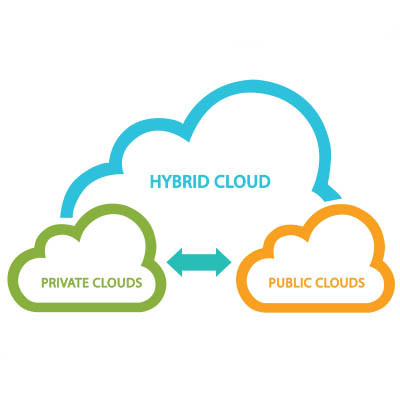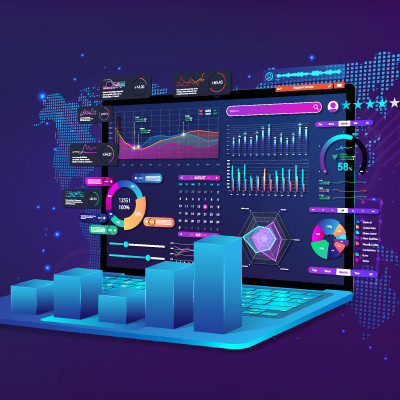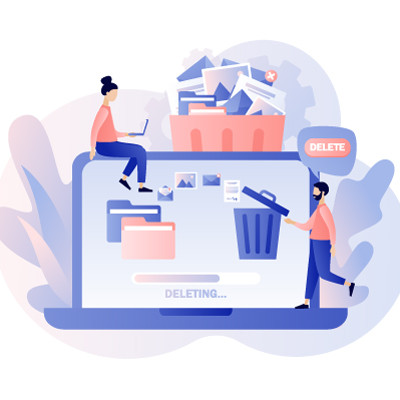Cambium Data Blog
Does the new year have your business relocating offices sometime in the next 6 to 12 months? One of the most expensive mistakes a business can make when moving is treating IT like the last box to be packed (or unpacked). Instead of running the risk that your IT won't work as intended in your new space, we’ve compiled the three most important IT considerations for your new office location so your team can hit the ground running.
In business, it’s often the case that you spend more time talking about work than you spend actually doing the work. How many emails have you sent recently that could be described as “email tennis?” We won’t mince words; this endless back-and-forth discussing meeting times, checking calendars, and re-typing the same responses day-in and day-out is increasing your administrative friction and wasting your time.
Today, we’re exploring three ways you can automate scheduling and communication to put an end to the emails and finally get back to work.
It’s common for business owners to view technology costs as an annoying utility bill rather than money that could be the first step in a strategy to rapidly grow their business. There is a massive difference between spending money to tread water and spending money to swim faster, however. To determine if your current IT budget is a drain or a driver, there are some questions you will need to ask. Here are some:
The hiring process is long and tiring, but hopefully by the end of it all, you end up with the perfect candidate for the position. While they might be eager to get to work, they might find themselves ill-equipped to do their job—a position you don’t want them to be in. Unfortunately, this is how many new hires start their tenure with a new employer, and while it might be tempting to claim that someone simply dropped the ball during the onboarding process, it’s more likely that the onboarding process itself is broken.
Chances are you get a lot of unwanted messages, whether it’s spam or messages from threads, feeds, or newsletters you no longer want to receive. Thanks to some nifty built-in features in Gmail and Microsoft Outlook, you can easily unsubscribe from pretty much any website that’s sending you boatloads of emails, and it’s as easy as clicking a link.
Resistance to new technology is a common challenge for businesses. The key to a smooth rollout isn't just about picking the right technology; it's about building a comprehensive strategy that addresses the human element of the change being made. As software is extremely important to any business, having a solid strategy in place to address the governance of your IT systems only makes sense. Today, we’ll give you a baseline on how to build one.
The moment when the technology you rely on suddenly stops working can be frustrating, but more than anything else, it can be expensive. If you understand these types of situations, you know that you need a plan to keep them few and far between. Let’s take a look at the costs of downtime and a few things you can do to keep it to a minimum.
Artificial intelligence is invading business IT infrastructure around the world, with chatbots being one of the more commonplace solutions out there. When implemented appropriately, chatbots can act as a cheat code for managing customers, handling inquiries, scheduling appointments, and even marketing your services.. Today, we want to help you get set up with chatbots so you can make better use of your time.
Supercharging your productivity is all about making small, deliberate changes that create lasting impacts. Unfortunately, there is no roadmap to follow, so you will have to figure it out for yourself. In today’s blog, we talk about prioritization, time management, and focus and how they each work to help you get more done.
All businesses need financial management and accounting, whether it’s with a full-fledged team of accountants or a single employee. Small or large, you can bet all businesses can benefit from software that streamlines this process. Today, we’re focusing on Intuit Quickbooks and its many shortcuts which make it an accessible solution for all businesses.
If you want to discuss the single most influential technology for the modern era, there’s a lot of competition—but the cloud is a serious contender. Through the cloud, your organization can pull off feats previously impossible for all but the largest and most profitable companies. Today, we want to look at how small businesses use the cloud and how you benefit from the various models.
AI is everywhere and it could be said that it is transforming the modern economy. With each passing day the technology is becoming an essential tool for businesses looking to boost their overall business efficiency. Small businesses can use AI in a number of ways and in today’s blog, we’ll explore how they can use AI to their advantage.
Technology has enabled us to achieve more than ever before, but with that progress comes higher expectations. Increased productivity demands can sometimes feel overwhelming, making it essential to find effective ways to manage tasks. There's a natural limit to how much we can do, however, and certain obstacles can push us to that limit more quickly. Today, we’ll explore two common productivity pitfalls that many face.
Decision-making is such a big part of business, and a lot of time the “gut feeling” may actually work against their stated aims. By incorporating back-end analysis into their strategy, business owners can get insights that they typically wouldn’t even consider. It can make their businesses more money through improved sales, customer relationships, and efficiency. In today’s blog, we will go through what the incorporation of AI means for businesses regarding their business intelligence.
Cybersecurity is necessary for businesses to function, but when it turns to overreaching and overinvestment—a concept called cybersecurity sprawl—it becomes a problem. Today, we want to highlight some of the many challenges that can come about from cybersecurity sprawl, as well as how you can avoid it.
Digital waste encompasses all the unnecessary data cluttering our storage systems until we decide to address it. This includes redundant files, outdated emails and chats, and forgotten photos gathering digital dust. While dismissing digital waste as a mere inconvenience is tempting, its implications are unfortunately significant.
The definition of sustainability, according to the United Nations, is “meeting the needs of the present without compromising the ability of future generations to meet their own needs.” Originally coined in 1987, this definition has fueled businesses' efforts to work toward their own versions of sustainability, as per their service models. Let’s look at some ways you can make your own operations more sustainable.




















